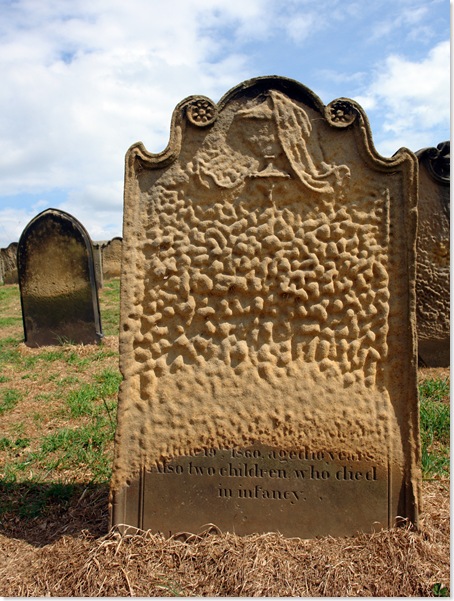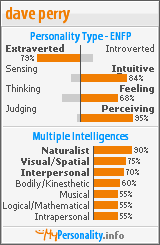 These badly weathered headstones are in the clifftop graveyard of St Mary's church in Whitby. For me there is something incredibly poignant about them. It is not just the obvious references to grief and loss, it is the sense that these lives and their unique stories are finally being erased and lost too. It seems to me that these headstones are a visual parable both of what time does to our collective memory and of the honest corrective to our human 'pomp and circumstance' which the Bible provides. Just consider these lines:
These badly weathered headstones are in the clifftop graveyard of St Mary's church in Whitby. For me there is something incredibly poignant about them. It is not just the obvious references to grief and loss, it is the sense that these lives and their unique stories are finally being erased and lost too. It seems to me that these headstones are a visual parable both of what time does to our collective memory and of the honest corrective to our human 'pomp and circumstance' which the Bible provides. Just consider these lines:
Ecclesiastes 3.20: All go to one place; all are from the dust, and all turn to dust again.
Job 10.9: Remember that you fashioned me like clay; and will you turn me to dust again?
Job 34.15: all flesh would perish together, and all mortals return to dust.
Genesis 3.19: By the sweat of your face you shall eat bread until you return to the ground, for out of it you were taken; you are dust, and to dust you shall return.
As I reflect on these verses and the photos they beg many questions and trigger off many thoughts. They somehow put our lives into a fresh perspective; one which is not afraid of facing up to mortality because one day this will be true of all of us too. Earth to earth, ashes to ashes, dust to dust. So these images reinforce the sense of how profoundly precious life actually is. In the face of such an inconvenient truth as the certainty of death and the uncertainty of when, what choices do we have? Time then for a rant.
Well, let's not delude ourselves: for many of the world's population there is no choice. The poor don't have the luxury of choices. However, for others in the wealthy world of developed economies the situation is rather different. Just think of the message of the BBC programmes 'The Apprentice' or 'Dragons Den': to succeed is to be another Alan Sugar or Peter Jones, absurdly wealthy with every pleasure and choice money and influence can buy, right at your fingertips. What these shows peddle is in part nothing less than a false hedonistic 'live today, kill the planet and stuff the poor tomorrow' consumerist ethic so typical of capitalism the world over. The relative worth of our lives is measured financially as net worth, as in Ultra / High Net Worth Individuals. Limits to growth? Not on the radar. As one commentator put it: "a lot of people are getting very rich from the current situation, and they like it that way. The current elites are well enough served by the current situation that there isn't a lot of incentive for them to really push to change it." Politicians talk of increasing prosperity either because they are too scared and hence too self-interested to be truthful or because they are wedded to the emperors new clothes that is capitalist market economics combined with the belief that technology will solve everything. To my way of thinking this is all bare-faced suicidal hogwash in a world in which the limits to growth and indefensible inequities between rich and poor are already so painfully and damagingly apparent. The lure of the impossible economic dream is fast turning into the nightmare of global ecological catastrophe. The original authors of the Limits to Growth report offer an alternative take to that of unrestrained market economics when they state that "ideas of limits, sustainability, sufficiency, equity, and efficiency are not barriers, not obstacles, not threats. They are guides to a new world. Sustainability, not better weapons or struggles for power or material accumulation, is the ultimate challenge to the energy and creativity of the human race." When George Monbiot speaks of global warming as a brutal truth he is pointing the finger at the predominant culture of prosperity driven consumption: "Those who are most responsible for carbon pollution are – being insulated by their money - the least likely to suffer its effects." Tellingly he goes on to observe that "The most powerful story of all, endlessly narrated by the hired hands of the fossil fuel industry, just as it was once told by the sugar slavers, is that we are both all-important and utterly insignificant. We are too important to be denied any of the delights we crave, but too insignificant to exert any impact on planetary processes." If humanity is to avoid condemning itself to a future which resembles the lost lettering on a Whitby gravestone, we need to tell a different story. And each of us must begin to live a different, sustainable and co-operative story.
Faced with the certainty of death and ageing some take another route, although yet again, one that is not an option for the poor, who tend to die younger and age prematurely. However, all the cosmetic surgery, fancy dentistry and hair dye in the world cannot alter this most absolute fact of all. So why bother? What is the point? How does 'doing a Berlusconi' actually help anything except vanity, when everything under the skin just carries on becoming even more clapped out? Trying to be what one is not just seems fake somehow. If beauty is only about appearance we live in a soul-less world. As I look in the mirror and then marvel at the disappearing act worked by the twenty three year old man staring back at me in our wedding photographs, I can't help but think that it would be far far better for us all to work at some nip and tuck for the soul. The gains won't be as visible but they will be well worth having and will, arguably, make us much more attractive, which is sort of the point of spending oodles of cash on the surgeons knife isn't it? The only snag is that unlike cosmetic surgery a soul-lift is free, so there is no capitalist market driven cache to be had. After all, we are talking about a poor Palestinian peasant as a role model, someone for whom 'travelling light' was a way of life and in whom loving kindness, liberation and non-violent resistance became defining lines in the sand of human history. Not a high net worth individual then, quite the reverse in fact, but the ultimate example for many of us of an 'ultra-value-added-to-others' individual. A man rich in love, justice and compassion who transformed the lives of those around him. A man in whom God was met and seen and experienced, who was, therefore, such a profound threat to the elite of his day who lived by very different values. In Jesus the fallacy of so much of today's politics and economics is laid bare as an empty promise. Capitalism is dead, but only the planet and the poor seem to have noticed. Long live co-operation.
When our names are long weathered on a headstone and we are returned to dust, our choices, what we owned or did not own and how much money we had or did not have will probably be long forgotten; the fact that we chose to live our lives centred on the value-added radical life and teachings of Jesus might just still be visible in the lives of those who are as yet unborn.








A most perceptive post.
ReplyDeleteThink I might link to it tomorrow
Thanks Paul, glad you liked it.
ReplyDeleteGood.
ReplyDeleteLink will have to wait till I return from holiday.